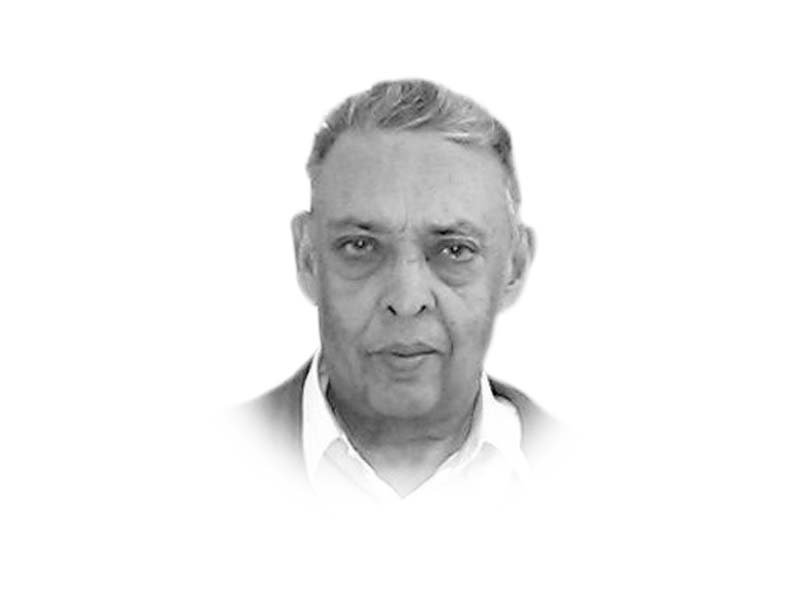
Yet we see immense backwardness and suffering. The question arises: should the child dying of thirst and hunger in Tharparkar district not have the chance to become an Immanuel Kant, a musical genius such as Gioachino Rossini, or an artist like Pablo Picasso? Our endeavours need to be channelled towards the uplift and emancipation of the broad masses.
We have come a long way in Pakistan’s short history despite being beset by three decades of military rule, and despite a terribly hostile neighbourhood. Our determination in the face of insurmountable odds must not waver. Our military must be honoured and strengthened but it is not their job to run the country. We need to evolve a tolerant, healthy, fair and modern society. This must be done in a constitutional framework based on the rule of law, freedom and political democracy.
I began this piece by alluding to the cosmos and the pettiness of man in that context. An article in this newspaper’s partner The New York Times International edition of 3-4 June 2017, page 6, describes the spectacular breakthroughs achieved this year by astrophysicists in understanding space-time vibrations from black-hole merger three billion light years away. Since September 2015, some thousands of astronomers and physicists in the USA and Europe have begun unraveling the mysteries of the mass spectrum of black-holes in the universe with the aim of watching their births and deaths. When massive black-holes merge, they are presumed to shed more energy in the form of gravitational waves than all the stars in the observable universe! This is measured by a fraction of an atomic diameter 20 times a second. Their effort is also to detect the collision of neutron stars — the super dense remnants of some kinds of supernova explosions.
I am not aware of the role of our own Pakistani origin astrophysicist Nergis Mavalvala in these latest cataclysmic discoveries. She is recognised for her part in the first observations of gravitational waves. She is a source of immense pride and inspiration to us all and is a shining example for Pakistani females. They need to emulate her example in different and diverse fields.
Another icon for us to behold is the brilliant young Chinese pianist of Western classical music, Yuja Wang. She is truly marvelous. Would our youth achieve similar heights in this genre of music! Such a turn-around for our youth in the study of musicology would be very desirable.
On a side note, it may be stated that our educational priorities in Pakistan need to shift from comparatively excessive spending on higher education aimed at producing very large numbers of mediocre PhDs towards focusing urgent attention on primary and secondary schools. Our main hurdle is shortage of good teachers. It is primary and secondary schools that feed colleges and universities. If the students emerging from them are ignorant and not up to the mark, which is actually the case, then our higher education too will have a bleak future.
Published in The Express Tribune, June 19th, 2017.
Like Opinion & Editorial on Facebook, follow @ETOpEd on Twitter to receive all updates on all our daily pieces.

1731479848-0/Elon-Musk-and-Vivek-Ramaswamy-and-Donald-Trump-(1)1731479848-0-165x106.webp)






1729685382-0/Untitled-design-(57)1729685382-0-270x192.webp)




COMMENTS
Comments are moderated and generally will be posted if they are on-topic and not abusive.
For more information, please see our Comments FAQ